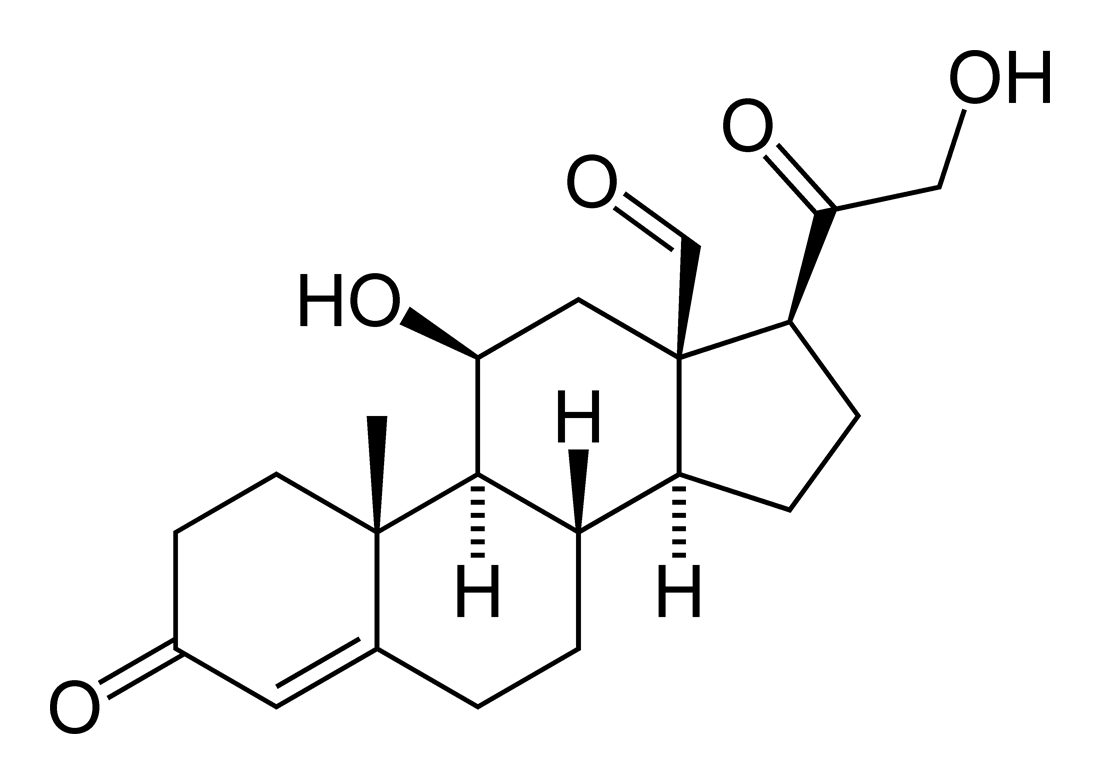Addison's disease laboratory findings: Difference between revisions
Aditya Ganti (talk | contribs) |
Aditya Ganti (talk | contribs) |
||
| Line 32: | Line 32: | ||
* Followed by cortisol levels 30 and 60 minutes after cosyntropin administration. | * Followed by cortisol levels 30 and 60 minutes after cosyntropin administration. | ||
|} | |} | ||
==Specific tests to determine adrenal gland function== | |||
===ACTH Stimulation Test=== | ===ACTH Stimulation Test=== | ||
Revision as of 02:03, 15 August 2017
|
Addison's disease Microchapters |
|
Diagnosis |
|---|
|
Treatment |
|
Case Studies |
|
Addison's disease laboratory findings On the Web |
|
American Roentgen Ray Society Images of Addison's disease laboratory findings |
|
Risk calculators and risk factors for Addison's disease laboratory findings |
Editor-In-Chief: C. Michael Gibson, M.S., M.D. [1]
Laboratory Findings


A diagnossis of Addison's disease is made by laboratory tests. The aim of these tests is first to determine whether levels of cortisol are insufficient and then to establish the cause. This include routine blood tests and specific tests
- Specific tests to determine the function of adrenal glands include:
- ACTH Stimulation Test
- CRH Stimulation Test
- Routine blood tests
- CBC
- CMP
- Plasma cortisol level
- Serum ACTH level
- Plasma renin activity and aldosterone levels
- Serum biochemistry
Diagnostic decision
| Clinical setting | Best initial test |
|---|---|
| Non-acute |
|
| Acute illness |
|
Specific tests to determine adrenal gland function
ACTH Stimulation Test
This is the most specific test for diagnosing Addison's disease. In this test, blood cortisol, urine cortisol, or both are measured before and after a synthetic form of ACTH is given by injection. In the so-called short, or rapid, ACTH test, measurement of cortisol in blood is repeated 30 to 60 minutes after an intravenous ACTH injection. The normal response after an injection of ACTH is a rise in blood and urine cortisol levels. Patients with either form of adrenal insufficiency respond poorly or do not respond at all.
| 8 am cortisol | |||||||||||||||||||||||||||||||||||||||||||
| >15Ug/dL | 3-15Ug/dL | <3Ug/dL | |||||||||||||||||||||||||||||||||||||||||
| Adrenal insufficiency is ruled out | Measure ACTH | ||||||||||||||||||||||||||||||||||||||||||
| 30 min cortisol during cosyntropin stimulation test | |||||||||||||||||||||||||||||||||||||||||||
| >18Ug/dL | <18Ug/dL | ||||||||||||||||||||||||||||||||||||||||||
| Adrenal insufficiency is ruled out | |||||||||||||||||||||||||||||||||||||||||||
| Adrenal insufficiency confirmed | |||||||||||||||||||||||||||||||||||||||||||
| Measure ACTH | |||||||||||||||||||||||||||||||||||||||||||
| Low/normal | Elevated | ||||||||||||||||||||||||||||||||||||||||||
| Secondary Adrenal insufficiency | Primary Adrenal insufficiency | ||||||||||||||||||||||||||||||||||||||||||
CRH Stimulation Test
When the response to the short ACTH test is abnormal, a "long" CRH stimulation test is required to determine the cause of adrenal insufficiency. In this test, synthetic CRH is injected intravenously and blood cortisol is measured before and 30, 60, 90, and 120 minutes after the injection. Patients with primary adrenal insufficiency have high ACTHs but do not produce cortisol. Patients with secondary adrenal insufficiency have deficient cortisol responses but absent or delayed ACTH responses. Absent ACTH response points to the pituitary as the cause; a delayed ACTH response points to the hypothalamus as the cause.
In patients suspected of having an addisonian crisis, the doctor must begin treatment with injections of salt, fluids, and glucocorticoid hormones immediately. Although a reliable diagnosis is not possible while the patient is being treated for the crisis, measurement of blood ACTH and cortisol during the crisis, and before glucocorticoids are given, is enough to make the diagnosis. Once the crisis is controlled and medication has been stopped, the doctor will delay further testing for up to 1 month to obtain an accurate diagnosis.
Routine investigations
Routine investigations include:
- Complete blood count and differential count - Eosinophilia and lymphocytosis (increased number of eosinophils or lymphocytes, two types of white blood cells). Normocytic anemia may be present.
- Hypoglycemia (worse in children)
- Serum electrolytes:
- Hyponatraemia (low blood sodium levels)
- Hyperkalemia (raised blood potassium levels), due to loss of production of the hormone aldosterone
- Mild hypercalcemia - in 20% patients
- Mild non–anion-gap metabolic acidosis
- Serum cortisol - decreased (<25mcg/dL)
- Urine and sweat sodium - elevated
- Elevated BUN and creatinine - when hypovolemia is the cause.
- Prolactin - mild elevation may be present.